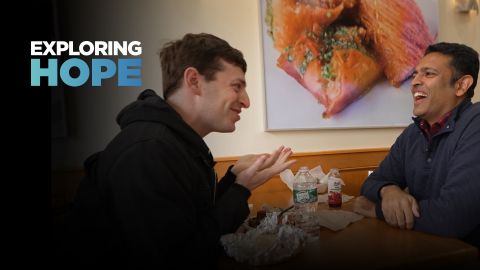Alex Edelman:
I mean; I think of it as not a binary. A friend of mine has a podcast. Wonderful person. And they said to me, “you know, we only have women and people of color on the podcast. We’d love to have you on sometimes, maybe.” And I said, “what do you mean, ‘maybe’?” and they said, “well, you know we’re not sure if Jews qualify.” After the synagogue shooting in Pittsburgh, they called me, and they were, like, “you know, you we might we maybe, would you co come on the podcast?” And I was, like, “is it because this week you think that Jews are oppressed?” And they were, like, “I mean, yes, kind of.” And I was, like, “would you have on in nine months?” And they said to me, like, “I don’t know.”
I tell my friends, and they’re, like, “that’s horrible.” and I’m, like, “that’s okay.” Like, it’s not great, but it’s not about that person’s prejudices. It’s about us not really understanding, like, where Jews fit in in our, like, binary-based systems of oppressor and oppressed. Like, that’s really what it is. What I always say is that, like, “here’s how you know if Jews are white. If you think being white is awesome, then Jews definitely aren’t white. If you think being white is horrible, then Jews are the whitest people who’ve ever lived. They’re whiter than white people. It’s a lose-lose situation.

